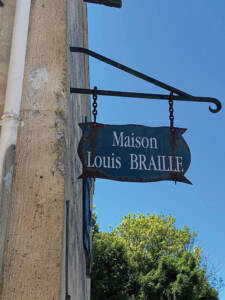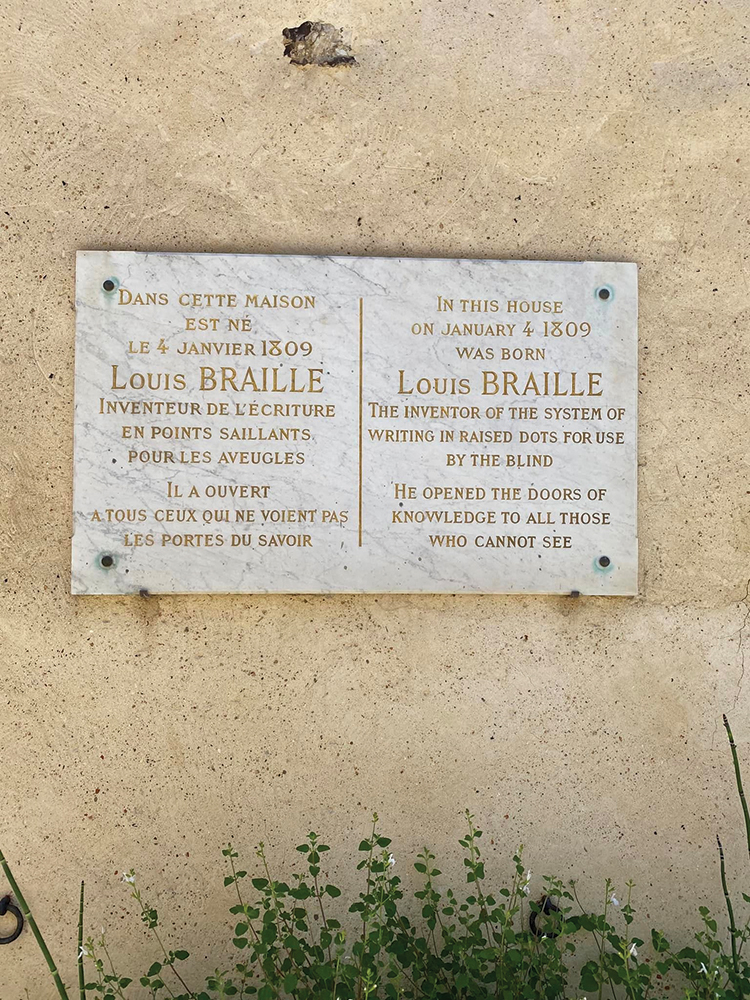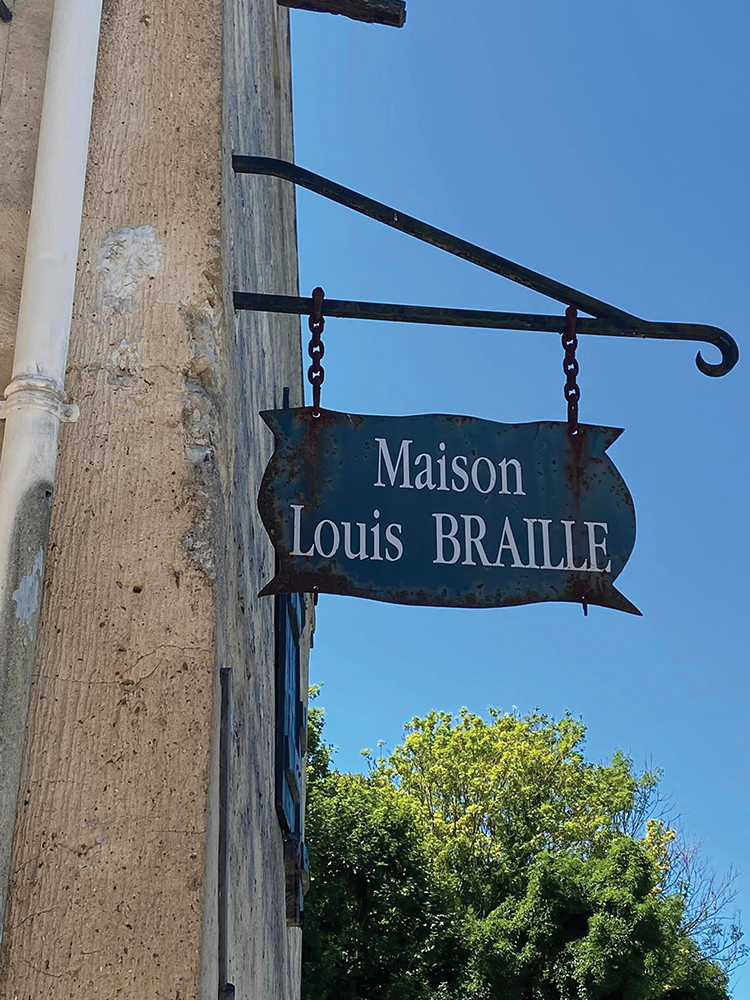Touch of a Genius: Louis Braille

We celebrated World Braille Day on January 4th. A day that honoured the birth of Braille’s inventor, Louis Braille. Braille’s gift to the world has brightened the lives of millions of people who are blind or visually impaired and benefit from the Touch of a Genius’s work every day. The day also acknowledges that those with visual impairments deserve the same standard of human rights as everyone else.
The term ‘Braille’ was dubbed after its creator. Braille lost his eyesight aged 3 when he accidentally stabbed himself in the eye with his father’s awl.

I’ve visited Louis Braille’s birthplace a few times in the small French village of Coupvray (Paris, very close to Disneyland)
Louis Braille’s father was a maker of harnesses, saddles, and other leather goods. By today’s standards, the Braille home was comfortable and well-furnished. A fireplace dominated the main room of the house, which served as the kitchen, dining room, and master bedroom. None of the original furnishings has survived. However, the house has been furnished with authentic pieces from the early nineteenth century. This was to help to convey the way the Braille family may have lived.

The Workshop
In the workshop, the guide showed us an assortment of leather straps, pouches, and shoe parts, examples of the kinds of goods Louis’s father produced. On the workbench lay a series of awls and knives, the formidable tools of the harness-maker’s trade. One such tool played a key role in Louis Braille’s story.
From the workshop, we were led into a small museum. Among the displays were several books in raised print that were used at the Institute for Blind Youth before the Braille code was adopted. The books were very thick and immensely heavy, much bigger than the Braille volumes used nowadays.
From the age of 10, Louis spent time at the Royal Institute for Blind Youth in France. There he formulated and perfected the system of raised dots using only 6 dots, as on a domino that eventually became known as Braille.
Touch of a Genius
Braille completed his work making it possible for a fingertip to feel the entire cell unit with one touch and moving quickly from one cell to the next. Eventually, Braille slowly came to be accepted throughout the world as the main form of written information for blind people. Unfortunately, Braille didn’t have the opportunity to see how useful his invention had become. He passed away in 1852, two years before the Royal Institute began teaching Braille.
Braille’s marvellous aid that opened up a world of accessibility to the blind and visually impaired was recognized by the United Nations General Assembly (UNGA). In November 2018, January 4th was declared World Braille Day. The first-ever World Braille Day was commemorated the following year and it was celebrated as an international holiday.
Today’s World
There are one billion people living with varying disabilities in the world, according to the World Bank. Approximately 15 percent of the global population, with a higher prevalence in developing countries.
Securing the rights of disabled people has become a priority for Middle East countries, home to an estimated 30 million People of Determination, many of whom live in disadvantaged circumstances. In the UAE, the government has demonstrated the will to make a difference by designating it as a priority issue. In 2019, Abu Dhabi hosted the Special Olympics, in which more than 7,000 athletes from around the world competed. Comprehensive laws are now in place to guarantee the employment and education rights of People of Determination. This year, Dubai announced the creation of the Higher Committee to Protect the Rights of People of Determination.
As a result of such actions, asserting the rights of the disabled around the world is clearly an integral part of the Emirates’ modern identity.








